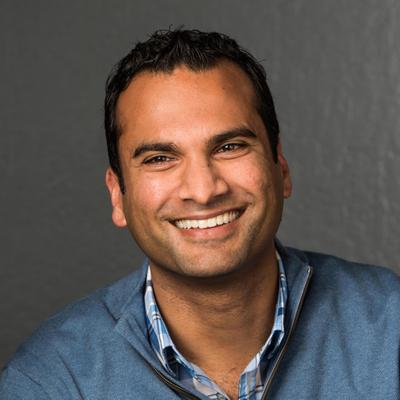Or listen on your favorite podcast app
Apple Podcasts / Google Podcasts / Spotify
—
“Culture has to be deliberate. It’s first and foremost reflected by the people that you have, the leadership and the kinds of decisions that they make on a day to day basis. It’s not values you put up on a wall.” – Karthik Rau
Karthik Rau is currently the co-founder and CEO of SignalFx, but he is a Silicon Valley original. His experience goes back to the beginning of the dot-com boom, and his early involvement includes hopping on the VMware rocket ship right as it was taking off. By the time he was starting SignalFx, the Internet was running full force, but the cloud was still in its infancy.
On this episode, Karthik (with some help from Thomas Butta, SignalFx CMO) explains the journey he’s taken through the early days of the Internet to his role now as a very technical CEO.
“There’s no one size fits all, every leader is unique. Every company is unique, and it depends on the individuals and the circumstances. There’s a different kind of grit, background, and mentality needed when you’re getting something started from zero to one…. What I’ve observed is that my role keeps changing every 18 to 24 months as the company gets from one stage to the next.”
Tune in as Karthik explains what it means to be a CEO and how to build a positive company culture, and shares personal stories about his successes and failures along the way.
Quotes from Karthik:
“I went to college here in the Bay Area at Stanford during the dot com craze, so it was hard not to be infected by the enthusiasm and the energy here.”
“In 2001, you had a few million people connected to the Internet. They were connected when they were sitting in front of their desktops. Today, you’ve got four billion people connected to the Internet, and they’re connected all the time with their smartphones. Minutes of consumption is up through the roof. What that means is that software consumption has become a far more significant part of everyone’s day to day lives. As a result, there’s a lot more money going into it.”
“In today’s world, everything is delivered as a service. You have a mobile app, it’s connected to a cloud service. You’re very rarely downloading actual package software into your laptop. You’re connecting to a web browser and everything is just a service.”
“We foresaw that trend and we thought, ‘Okay, well, if the rest of the world starts to behave and act more like a Facebook or a Google, they’re going to need a better way of monitoring these applications. It’s going to need to be more real time. It’s going to need to leverage more sophisticated analytics engine. The challenges are just going to be completely different from the kinds of challenges traditional monitoring systems had to solve.’ That was the impetus for us to start the company, and why we decided to put all of our efforts behind SignalFx.”
“Don’t hide the bad things from people. You talk about what’s going well, but you also embrace the difficulties, the challenges, and you make sure everyone understands those. If you do that, then hopefully the team has a little bit more faith and confidence and trust in you that you’re doing the right things to solve those sorts of problems.”
“Culture has to be deliberate. It’s first and foremost reflected by the people that you have, the leadership, and the kinds of decisions that they make on a day to day basis. It’s not values you put up on a wall.”
“The advice I give people is that you have to start a company for the right reasons. If you’re doing it because you believe in the mission, if you want the character development of pushing yourself and seeing how deep you can dig, then it’s a phenomenal life experience. It’s one that I would encourage anyone to do.”
Mentions:





